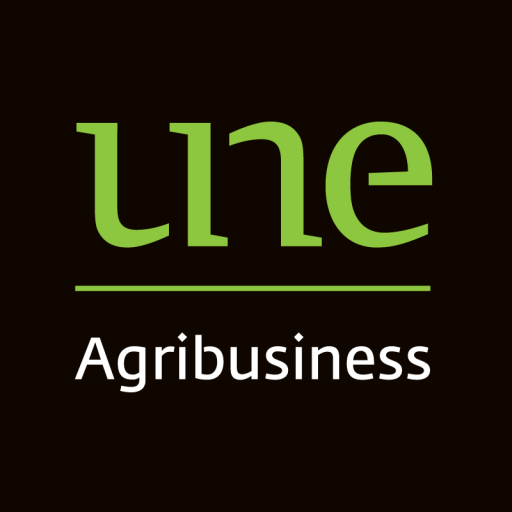These are exciting times for agribusiness at UNE, with the opening of UNE’s SMART Region Incubator on 2 March 2017, and the launch of a new project pipeline for the Centre. Also a great deal of work is underway and the times are interesting.
The Centre’s work featured in two well-attended presentations at the recent Annual Conference of the Australasian Association of Agricultural and Resource Economists in Brisbane in early February 2017. One by Shawn Leu and Ed Lefley on the development of regional economic indicators in NSW targets further work with the NSW government on measuring and understanding the economics of the regions, and particularly the role of agribusiness. At the AARES conference they presented a regional resilience index for 29 regions in NSW which used new data sets specially sub-divided to examine rural vs urban spaces. The result confirms the anecdotal observation that there is a deepening divide between the economic development and hence the degree of resilience between the urban and country regions.
The second paper, by Derek Baker, Stuart Mounter, Renato Villano and Garry Griffith on early results from a consumer-oriented study of the opening of an Aldi store in Armidale. Analysis of the rich dataset (before and after Aldi’s opening) continues and we anticipate considerable interest from commercial firms, food industry organisations and consumer bodies alike. The conference presentation observes changing food purchase behaviour, particularly in terms of shoppers’ loyalty to brands in the presence of supermarkets’ own brands.
In January Derek Baker, Philip Morley and Michael Coleman finished up their large FAO-funded project on improved methods for livestock data collection, and Derek will travel to Marrakech, Morrocco in July 2017 to present its main findings at the 61st World Statistics Congress. This trip will be used to promote Australian technologies for livestock data collection and use, with the aim of piloting technologies in developing countries.
Derek Baker travelled to Brisbane in late February 2017 to initiate a joint Australian-Argentinian project addressing the unfilled needs of the agribusiness sector for tertiary education. The study includes as partners the Australian Meat Processors’ Corporation, the Armidale Business Chamber and Armidale’s own IT International. This begins an international agribusiness partnership with Argentina’s Universidad Nacional del Sur, from which we hope to develop exchanges of student and staff, as well as agribusiness professionals.
On-going work includes David Hadley’s study for the NSW government on the feasibility of glasshouse horticulture’s development in the State; and Derek Baker and David Hadley’s work with Gwydr and Moree Shires on new Cost-Benefit Analysis techniques for decisions on rural road funding. Susie Hester continues work on policies for managing risks associated with imported hazards such as invasive species, and plant and animal disease.
Kanar Dizyee completed his PhD in late February, on the systems dynamics modelling of agricultural value chains. He will join CSIRO in Brisbane to extend this modelling work into decision support tools for climate change in the team led by Mario Herrero. Oscar Cacho has begun a project with FAO looking at climate-smart agriculture, and continues work on farmers’ technology adoption. The Centre for Agribusiness is planning a new study on technology adoption, linked to David Miron’s leadership of the proposed new Farming Smarter CRC. We also saw the smallholder beef project in South Africa run by Heather Burrow extended for four more years, and a visit from local project leader Dr Nkhanedzeni (Baldwin) Nengovhela to UNE who gave a seminar on 23 March.
The New Year also sees re-engagement of Centre Director Derek Baker with UNE college life: issuing a challenge to Robb College to get their best and brightest student members installed in the UNE SMART Region Incubator as business start-ups. This challenge applies to all colleges, so get to it!
In the news, we saw that Coca-cola’s ubiquitous supply chain does in fact have limits, some mixed prospects and news for primary exports, and some drastic steps to keep the lights on. I wish everyone the best with beasts and bushels in 2017.

